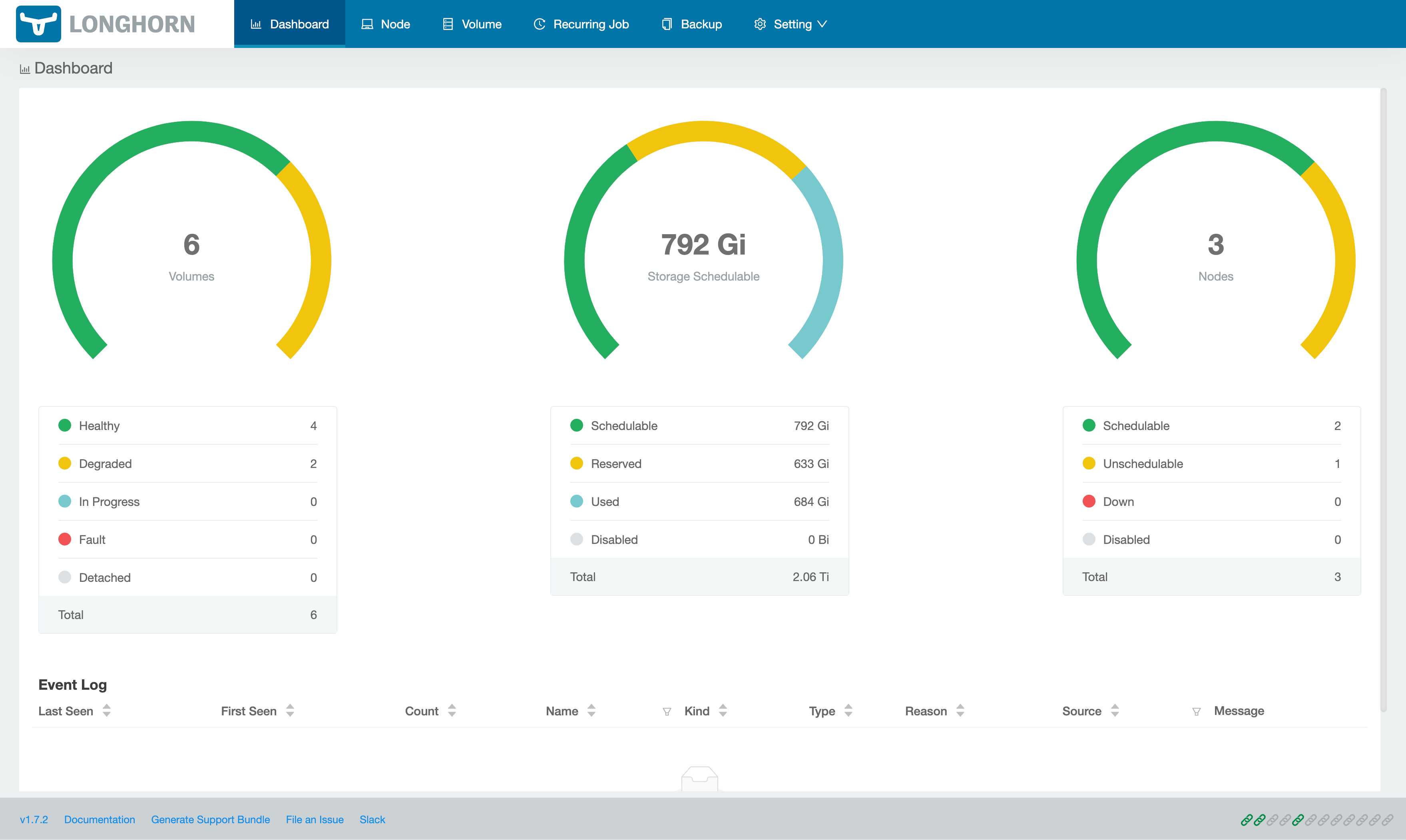Storage
So far, we have installed the cni and dns components to enable communication between pods. However, some applications require persistent storage.
To address this, there are two types of solutions: distributed storage and local storage.
Longhorn - Distributed storage
Longhorn is a cloud-native distributed block storage solution for Kubernetes. It provides persistent storage for Kubernetes workloads, allowing users to manage storage volumes with high availability, data replication, and automated backups.

TIP
Longhorn is useful when you have a single pod replica that requires a persistent volume. By using Longhorn, the persistent volume will be replicated across Kubernetes nodes, ensuring high availability.
Installation
The installation of longhorn is quite simple. You can install it with this command:
helm install longhorn longhorn/longhorn --namespace longhorn-system --create-namespace --version 1.7.2Dashboard
To enable the access of dashboard, you need to add those values in values.yaml.
host: &host longhorn.yourdomain.com
longhorn:
# enable ingress to access dashboard
ingress:
enabled: true
ingressClassName: nginx
tls: true
tlsSecret: *host
host: *host
annotations:
# We will see later how to manage TLS certificate with cert-manager and hashicorp vault
cert-manager.io/cluster-issuer: vault-issuer
cert-manager.io/common-name: *hostOpenEBS - Local storage
Sometimes, there are cases where distributed storage isn't necessary, and local storage suffices. For example, when deploying PostgreSQL in HA mode, you may not need Longhorn since the data is already replicated across pods in the HA setup.
OpenEBS is a Kubernetes native Container Native Storage solution that makes it possible for Stateful applications to easily access Dynamic Local PVs or Replicated PVs.
OpenEBS supports multiple storage backend like zfs or lvm. For my use case, the localpv-hostpath is enough.
Installation
The installation of OpenEBS requires the Helm chart located at https://openebs.github.io/openebs.
openebs:
localpv-provisioner:
localpv:
# Specify the path on kubernetes nodes to store PV
basePath: "/data"
hostpathClass:
reclaimPolicy: RetainAnd voila !
